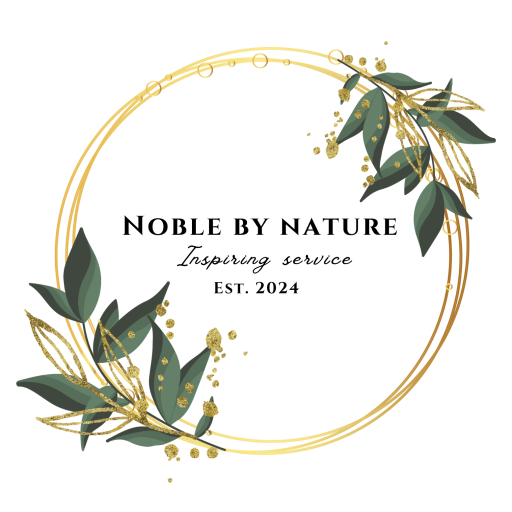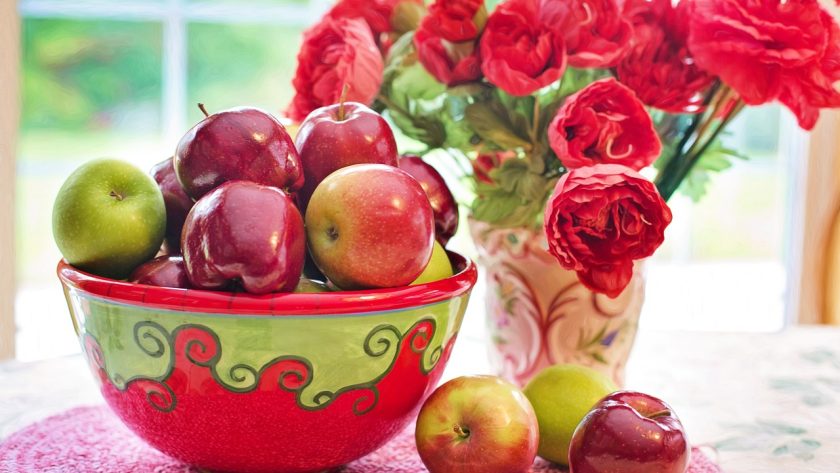The “law of assumption” is a common buzz phrase in the manifesting/esoteric/spirituality community. While reflecting on this concept, several insights dawned on me that I would like to share. The “law of assumption” is a technique that suggests that to manifest your desires and fulfil your aspirations, you must embody the attitude and feelings associated with the ideal version of you. It emphasises the significance of your subconscious mind and its ability to inspire and align you in pursuing the most relevant and appropriate action. This law highlights the subconscious mind’s inclination to bring about what you think about. It reminds me of how a farmer plants seeds during the right season and expects a fruitful harvest, knowing he or she has exerted the necessary effort to achieve his goal.
Below I have included “The Steps for Solving Problems” by Shoghi Effendi which I think supports this claim and has helped me on many occasions. Maybe it could provide some comfort and relief for you in times of difficulty:
The 5 Steps for Solving Problems
“The below five steps were suggested by the beloved Guardian Shoghi Effendi to a believer as a means of finding a solution through the use of prayer.
This statement belongs to the category of statements known as “pilgrim notes”, and as such has no authority, but since it seems to be particularly helpful and clear it was felt that believers should not be deprived of it.
1st Step: Pray and meditate about it. Use the prayers of the Manifestations as they have the greatest power. Then remain in the silence of contemplation for a few minutes.
2nd Step: Arrive at a decision and hold this. This decision is usually born during the contemplation. It may seem almost impossible of accomplishment but if it seems to be as answer to a prayer or a way of solving the problem, then immediately take the next step.
3rd Step: Have determination to carry the decision through. Many fail here. The decision, budding into determination, is blighted and instead becomes a wish or a vague longing. When determination is born, immediately take the next step.
4th Step: Have faith and confidence that the power will flow through you, the right way will appear, the door will open, the right thought, the right message, the right principle, or the right book will be given to you. Have confidence and the right thing will come to your need. Then, as you rise from prayer, take at once the 5th step.
5th Step: Act as though it had all been answered. Then act with tireless, ceaseless energy. And as you act, you, yourself, will become a magnet, which will attract more power to your being, until you become an unobstructed channel for the Divine power to flow through you.
Many pray but do not remain for the last half of the first step. Some who meditate arrive at a decision, but fail to hold it. Few have the determination to carry the decision through, still fewer have the confidence that the right thing will come to their need.
But how many remember to act as though it had all been answered? How true are these words “Greater than the prayer is the spirit in which it is uttered” and greater than the way it is uttered is the spirit in which it is carried out.”
(Source: Shoghi Effendi, Principles of Bahá’í Administration, p. 91.)
These 5 Steps remind me that to solve a problem or bring about a desired result one should adopt a prayerful approach and discern through reflection and meditation how your decisions can align with the necessary actions required to achieve your intended result. For me, I love applying these steps to the series of little and big challenges I face throughout my day as a means of strengthening my faith and conviction that all obstacles can be overcome, no matter how insurmountable it may seem. It has helped me to identify and adopt a more practical approach to the spiritual path we are all on.
I am all about growth, development, and progress. I love reflecting on ways to improve all aspects of myself and my life. This morning, I was reflecting on this “evolved” version of me and what she would look like. I reflected on some questions like: “What would she do? How would she speak? How would she dress? What would she be saying to herself when no one else was around to accompany her? What is her daily routine?” All the good stuff. I was trying to create a specific and clear picture of this version of me. One of the most interesting questions that popped up was: “What would she pray for?”. The answer that came to me was: “She would pray for the right mindset and attitude that would lead her to accept God’s Will concerning ALL aspects of her life”. The right attitude towards God, her purpose, parents, family, career path, service, friendships, destiny, marriage, and children as well as her hobbies and passion projects. Another aspect that popped up was money. Abundance. Prosperity. I began jotting down all these little notes trying my best to keep up.
From a young, most of us are taught that “money is bad”, “rich people are evil” and “nothing good ever comes from being too wealthy”. However, we have lost sight of a beautiful principle called moderation. There are many many ways in which money can be used for the betterment of humanity. I think it is about our attitude towards our resources and whether our intentions align with the decisions we intend to make. We live in an age of excessive consumerism and our attitude towards wealth has reached the pinnacle of materialism. Yet, it does not have to be this way. What if we corrected our attitude towards money in a manner that reflected good stewardship and responsibility? While action steps like spending, saving, and investing are important, how can society develop a healthier attitude towards money? And instead of trying to make more, what if we optimized the money that is currently available? The truth is that it’s not that there isn’t enough; it’s that it’s mismanaged.
Money is a resource: an instrument. It has a reputation for getting us what we want. Most money is not ours because it is merely a symbol that represents the ability to exchange value. It is a symbol of prosperity and abundance and therefore requires responsibility and maturity. In my opinion, most of us are spendthrifts. Why? Because we are not used to having money. “I don’t have enough” is a common limiting belief. We have this compulsion to spend and get what we want. We can’t say “no” because we don’t like being denied. We always want the answer to be “yes”. Why? Hedonism.
Our consumerist society is pleasure-driven. The world spends billions on entertainment, to distract us from the meaningless and superficial lives we have generated. We are governed by our lustful appetites and search for ways to numb the pain of lacking personalized purpose so much that we lose sight of the little joys that our everyday routine can bring. One would think that a possible antidote could be self-control but if we do not understand the value of our resources, we would not be able to discern and judge how to “budget” our time, energy, willpower, attitude and leisure. Understanding the total value of our resources helps us reduce unnecessary and discretionary costs.
Most knowledge that would benefit us in the different chapters of life is excluded from our curriculums. Important practices like saving and investing are brushed over and identified as something that can be learnt in a student’s free time if they have the desire to learn about the management of both tangible and intangible resources.
Young people have constantly been bombarded with the message that the pursuit of a life of luxury is our primary purpose. If we have a big bank balance, a prestigious job title, and a premium VIP experience then we have “made it” in life. But is a life of luxury worth pursuing? Does comfort lead to cosiness or complacency? Have we made covetousness habitual? Have we forgotten that we live for a Higher Purpose and not ourselves? Surely seeking our pleasure cannot lead to the fulfilment and attainment of our true and sacred destiny.
So maybe instead of being hyper-focused on the accumulation and retention of mass wealth, we shift our focus to the true precious treasure of life: our souls. Society’s heightened inclination towards materialism has numbed us to injustices in the world. We scroll through our timelines in search of the latest news, mindlessly liking content and causes that we hope will take on the process of doing the nitty-gritty to actualize the betterment of the world. Yet, we have forgotten our responsibility as custodians of our souls to demonstrate and epitomize a life worth living. ʻAbdu’l-Bahá provides profound insights into the kind of life worth pursuing:
“To live the life is
To be no cause of grief to anyone.
To be kind to all people and to love them with a pure spirit.
Should opposition or injury happen to us, to bear it, to be as kind as ever can be, and through all, to love the people. Should calamity exist in the greatest degree, to rejoice, for these things are the gifts and favours of God.
To be silent concerning the faults of others, to pray for them, and to help them, through kindness, to correct their faults.
To look always at the good and not at the bad. If a man has ten good qualities and one bad one, look at the ten and forget the one. And if a man has ten bad qualities and one good one, to look at the one and forget the ten.
Never to allow ourselves to speak one unkind word about another, even though that other be our enemy.
To do all of our deeds in kindness.
To cut our hearts from ourselves and from the world.
To be humble.
To be servants of each other, and to know that we are less than anyone else.
To be as one soul in many bodies, for the more we love each other, the nearer we shall be to God; but to know that our love, our unity, our obedience must not be by confession, but of reality.
To act with cautiousness and wisdom.
To be truthful.
To be hospitable.
To be reverent.
To be the cause of healing for every sick one,
a comforter for every sorrowful one,
a pleasant water for every thirsty one.
a heavenly table for every hungry one,
a star to every horizon,
a light for every lamp,
a herald to everyone who yearns for the kingdom of God.”
This quote was pasted on my grandparents’ fridge for many years, and I do not think that I read it often enough. I think our elders know how to live a simpler life and we could learn a lot if we made the time to listen more attentively. I think that there is a movement towards having relevant discourses and most corporations are reflecting on the values they wish to embody in their work culture. I think that that is important. Qualities like compassion, understanding, encouragement, purpose, and integrity lead to a highly conscientized and open-hearted community whose values seep into the microcosms of society like the family unit and neighbourhoods. When we have these meaningful conversations with our peers and loved ones, we elevate the thinking patterns of all, and we create a culture curated by compassion.
So true wealth is not about the stuff. It is not about the latest iPhone or the sneakers that serve as status symbols. It is not about the influencers that push and promote the consumerist agendas of mass corporations that prioritize profit over purpose. It is about wellness. It is about enlightenment. It is about alignment and purpose and knowing who you are. Awareness and agency. Enkindlement by the Creative Word of God and the Holy Spirit’s inspiration to live according to our True North. When we live according to our true purpose which is to know, love, worship, and glorify God, our sojourn and service in this earthly realm leave a legacy that is priceless and precious. When we are spiritually grounded, we cannot be swayed by temporary pleasures. When we have mastered these new attitudes and practices as protagonists of progress, it is our sacred duty to sow sacred seeds that will yield spiritual harvests that will soothe our dis-eased society. Instead of assuming that we must follow the conventional path of pompous prestige, we can orient ourselves to a path of selfless service that brings a new way of living into being and propagates fruits of serenity, equanimity, discernment, and peace.





